It’s pretty easy to fall in love with Arkansas. That’s what happened to India Malherbe as she was traveling. The Oklahoma City native spent time in California and Colorado before arriving in the Ozarks that stole her heart. After deciding to stay, circumstances fell into place for a farming future in the natural state.
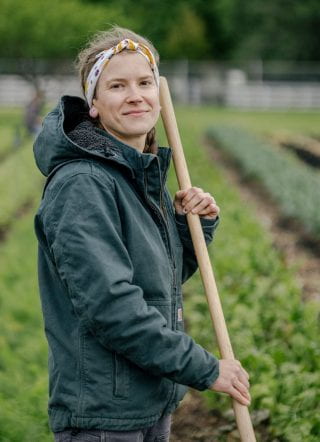 India’s interest in plants and love of growing things was imprinted early from a grandmother who always had a beautiful garden. Back in Oklahoma City, India volunteered at CommonWealth Urban Farm. Initially working on the establishment of their food forest, she later helped around the farm wherever needed. One area was a food redistribution program. Food was picked up from Whole Foods and provided to those in need throughout the neighborhood. In her early twenties, she went to work on a small family farm in California. Primary responsibilities included caring for the family’s children and tending the vegetable garden. India worked seasonally for eight years as an assistant floral designer. After deciding to stay in the Ozarks, a fortunate meeting with the owner of Gardenia Farm in Missouri led to India working on that flower farm. Next, she joined Americorp in Arkansas serving at UAMS as a VISTA Community Outreach Specialist. The position included working at the food bank garden and developing a survey of area food pantry sites to assess fresh food preferences. She also processed data from the Local Food, Farms, and Jobs Act. This program from the Arkansas Department of Agriculture encourages state-funded institutions to purchase a percentage of their food from local producers,
India’s interest in plants and love of growing things was imprinted early from a grandmother who always had a beautiful garden. Back in Oklahoma City, India volunteered at CommonWealth Urban Farm. Initially working on the establishment of their food forest, she later helped around the farm wherever needed. One area was a food redistribution program. Food was picked up from Whole Foods and provided to those in need throughout the neighborhood. In her early twenties, she went to work on a small family farm in California. Primary responsibilities included caring for the family’s children and tending the vegetable garden. India worked seasonally for eight years as an assistant floral designer. After deciding to stay in the Ozarks, a fortunate meeting with the owner of Gardenia Farm in Missouri led to India working on that flower farm. Next, she joined Americorp in Arkansas serving at UAMS as a VISTA Community Outreach Specialist. The position included working at the food bank garden and developing a survey of area food pantry sites to assess fresh food preferences. She also processed data from the Local Food, Farms, and Jobs Act. This program from the Arkansas Department of Agriculture encourages state-funded institutions to purchase a percentage of their food from local producers,
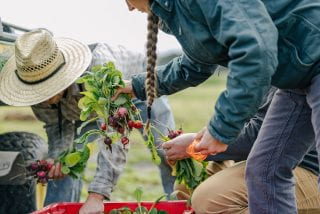 India’s mother was a Slow Food advocate and passed that along to her daughter. For those unfamiliar with “slow food,” just think of it as the opposite of the “fast food” system. It’s about eating whole, natural foods prepared using traditional methods. Imagine an old-time home-cooked meal prepared from scratch with fresh ingredients from the garden, like great-grandma used to make. The movement started in Italy back in 1986 in reaction to the encroachment of fast-food restaurants and pre-packaged food with unnatural ingredients. It grew internationally and has expanded to include biodiversity preservation, food education and advocacy for food equity. This is a result of the industrialization of our food system and decreasing accessibility of clean, nutritious food and how that affects the health of low-income households.
India’s mother was a Slow Food advocate and passed that along to her daughter. For those unfamiliar with “slow food,” just think of it as the opposite of the “fast food” system. It’s about eating whole, natural foods prepared using traditional methods. Imagine an old-time home-cooked meal prepared from scratch with fresh ingredients from the garden, like great-grandma used to make. The movement started in Italy back in 1986 in reaction to the encroachment of fast-food restaurants and pre-packaged food with unnatural ingredients. It grew internationally and has expanded to include biodiversity preservation, food education and advocacy for food equity. This is a result of the industrialization of our food system and decreasing accessibility of clean, nutritious food and how that affects the health of low-income households.
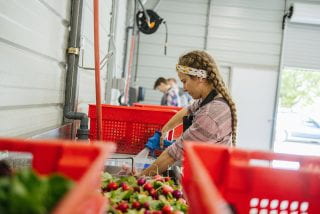 India had a hobby garden to feed her own household, but she wanted to do more. There was a desire to be a more significant part of the local food movement that she believes in. That’s what brought her to the CAFF Farm School. It was an opportunity for learning to produce food more efficiently to feed herself and the community. India is excited about making her dream a reality. Once she is in production, she will feel like she’s achieved her first goal and be a resource. “I’m excited about being part of this growing movement for a return to small-scale farming,” she says. “People are jumping on-board, developing and sharing methods. I want to share what I know, helping the movement grow. I want to keep working on my dream, making it a reality, bit by bit.”
India had a hobby garden to feed her own household, but she wanted to do more. There was a desire to be a more significant part of the local food movement that she believes in. That’s what brought her to the CAFF Farm School. It was an opportunity for learning to produce food more efficiently to feed herself and the community. India is excited about making her dream a reality. Once she is in production, she will feel like she’s achieved her first goal and be a resource. “I’m excited about being part of this growing movement for a return to small-scale farming,” she says. “People are jumping on-board, developing and sharing methods. I want to share what I know, helping the movement grow. I want to keep working on my dream, making it a reality, bit by bit.”
India’s long-term goal is to operate a diversified farm. Her short-term goal is to learn as much as possible. When asked what she likes most about learning to farm at CAFF, India says, “I love the garden as a classroom. You learn something new every day. It allows you to slow down and observe the interconnectedness of life cycles.”
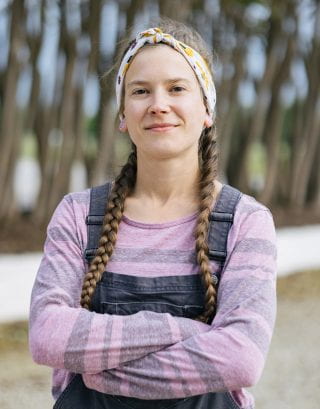
Find out more about the CAFF Farm School at UAFarmSChool.org.

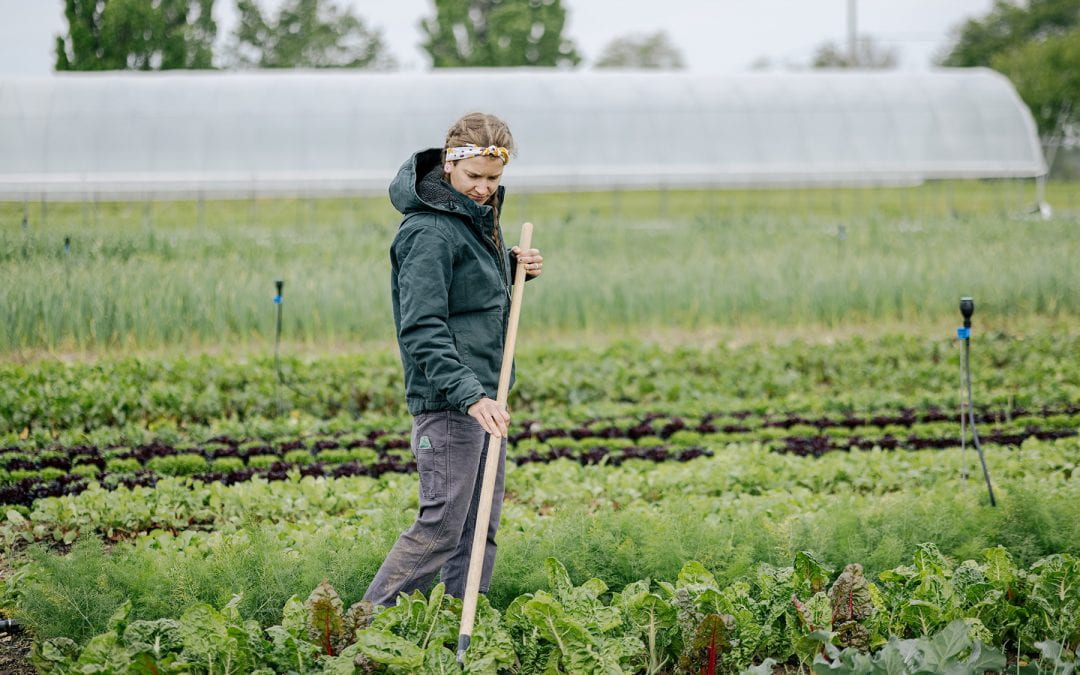
Recent Comments